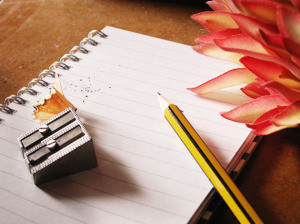How writing Heals
Writing provides a way to cope with physical and emotional pain, a method of connecting with others directly and indirectly, a container for experience and emotions that may feel unbearable in the moment. Creativity of any kind is healing, I believe, because it links us spiritually and emotionally with ourselves and others. Think about reading a poem or essay that moves you, maybe even runs a chill of beauty down your spine, or an “ah” of recognition, that means “Yes, I have also felt this way and when I read this I know I am not alone.” It could be that you are entering into a “relationship” with the author who, in speaking her voice, helps you understand yourself. When you write your own words or poems, you are connecting with yourself in this way, and when others hear or read your words, you are giving them the same opportunity to empathically respond to you.
Please join me for an new Meet Up Writing Therapy Group that will meet in Palo Alto alternating a weekday evening and a Saturday every other week. The group meets for two hours. In this group, we create a safe space to write and share. No critiquing of the writing occurs, rather, there is support, discussion about meaning, and appreciation of each other. This is a supportive community of writers who want to use writing for healing. I usually bring a poem or a line from a poem as a prompt and a warm-up writing exercise. Men and women are welcome. Please call me at 415-273-1036 to discuss your interest in the group and for more information. Or go to the Meet up page for my group. No previous writing experience needed!
About Writing therapy
In writing as therapy we write from our hearts, there is no emphasis on craft or skill, this writing is the kind that springs from another place than the mind alone, and would not want to be stifled. Poetry has been viewed as the carrier of a message from the unconscious to the conscious mind. Sometimes what you write from your heart could contain an important surprise or a seed of great healing. Even just one image can be a powerful soothing balm. For a woman who had just put her cat to sleep, the last line of her friend’s poem was that kind of image (written to the cat about the owner): “her hand will always be upon your back.”
When you write something down, it moves from inside to a safe place contained on a page. That page can be dated, saved, and read to others. The emotions on the page will feel like they can stay there, and the form of poetry with its border and structure can help to hold what is there like a safety net.
This form of self-expression does not need fancy equipment or a large studio. It can be as simple as writing down a thought or image onto a scrap of paper. Your writing can be in the form of a poem or any other form. It can be about giving darkness and suffering a voice, or about something that moved you in a hopeful way. Reading poetry and responding to a line, word, or image you liked and connected with can be an important tool in jump-starting your writing. The poem may lead you to ask a question that your writing can answer.
For women, writing can be an avenue to connect with your inner truth, develop self- understanding, and learn how to speak up for yourself and find empowerment. Wanda Coleman, a feminist poet, living in Los Angeles says, “Women’s writing will forever remain an important resource and wellspring. At its finest, it inspires, deepens and prolongs the ongoing dialogue around issues worldwide, often immeasurably affecting social change.”
For everyone, James Pennebaker, a psychologist who has studied the positive effects of writing on physical and emotional health, says it is important to write about your feelings as well as ways to solve your problems. This “working through” may be an important part of the healing process and actually improve how your immune system functions
Contact Phyllis directly at 415-273-1036, fill out a contact form, or send an email to
info@womenstherapyservices.com
More information about Phyllis Klein, LCSW


